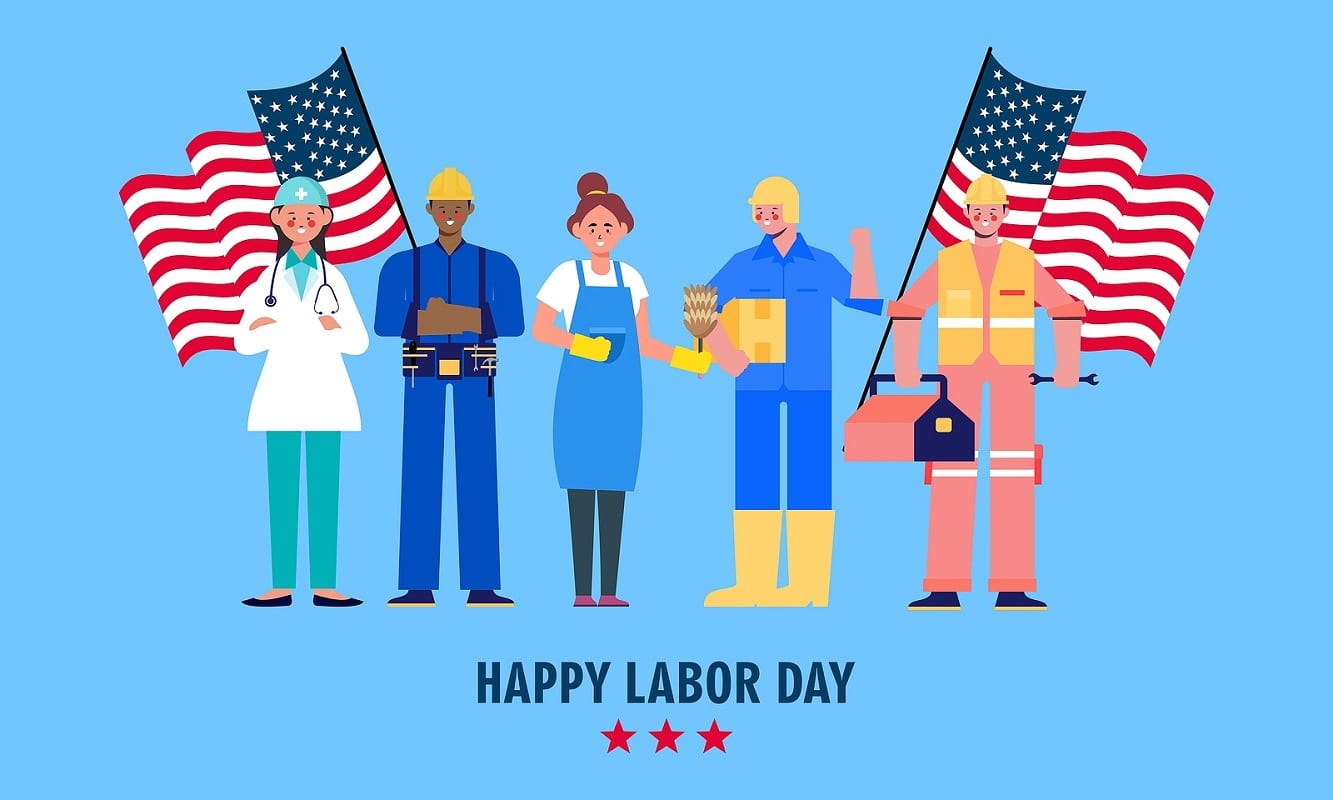The History of Labor Day and Why Employers Should Care

According to the latestresearch , 40% of businesses will be open on Labor Day and have some employees working on the holiday. However, employers should consider giving employees the day off to celebrate the holiday.
Not only will this help improve employee morale, reduce burnout, possibly improve productivity, andboost your employer brand , but it also shows that you care about your employees and the history of Labor Day.
But what is this holiday for, and why is it important? Keep reading to find out everything a business needs to know about labor day.
What Is Labor Day?
Labor Day takes place on the first Monday in September. This day is used to honor the achievements and contributions that American workers have given. The labor movement in the 1800s started this movement, and the government made it a federal holiday in 1894.
Labor Day weekend marks the end of the summer, and many people celebrate with Labor Day parades and parties.
Why Do Americans Celebrate Labor Day?
During the 1800 labor movement, they created significant changes and conditions for American workers. They also helped push for the benefits we know today, including a five-day work week, eight-hour workday, health insurance, and paid vacation. They focused on creating these benefits because they had a difficult time during the Industrial Revolution.
During that time, Americans worked twelve hours a day for seven days a week to earn a basic living wage. There were some restrictions on child labor, but some children were as young as five or six, working in factories, mines, and mills. And the children earned even less than their parents or adults would. They also had poor working conditions, like not having access to breaks, restrooms, or even fresh air. Some people were even working in dangerous situations.
As these conditions worsened, workers joined trade and labor organizations and unions and grew more vocal about wanting rights and better working conditions. They started organizing strikes and wanted to negotiate pay and working conditions.
While they were successful in the end, there were many violent events during this. One of the most famous ones included the Haymarket Riot of 1886. This happened in Chicago, and many workers and police officers died during this. In 1894, the Pullman Palace Car Company employees went on strike because their wages were being cut, and representatives of labor unions were being fired.
There was also one event that led to the tradition of the Labor Day holiday. On September 5, 1882, 10,000 workers took unpaid time off. They then marched in New York City from City Hall to Union Square. This was the first Labor day parade in the United States.
The History of Labor Day
After this, the idea caught on, and they created an unofficial workingman’s holiday. This caught on in several other industries and states, but Congress wouldn’t make it a national holiday for twelve more years, so they still had a long journey ahead of them. However, there were some states and cities that recognized the holiday locally.
New York was the first state to introduce a bill recognizing Labor Day, but Oregon was the first successful. Colorado, Massachusetts, New York, and New Jersey also passed laws, and Congress passed an act making it a federal holiday.
But who was the most critical founder for Labor Day? Some people still debate whether Peter McGuire or Matthew Maguire founded Labor Day. It’s unclear, but both workers contributed a lot to establish this important holiday.
There are some records that Peter McGuire suggested that there should be a holiday for laboring classes. He also wanted the holiday to recognize all the things they had done for the workforce and all their contributions. He co-founded the American Federation of Labor and was significantly involved in the movements.
However, many people think that Matthew Maguire, the secretary of the Central Labor Union, proposed the holiday. When New Jersey signed a document saying this would be a holiday, they credited Maguire as the founding father of the holiday.
Why Should Employers Care?
Employers should care about the history of Labor Day and remember why it was implemented as a holiday in the first place. Employers can directly impact their employees’ personal and work lives.
Employees should take this time to reflect on their company’s mission and values and see if there are any aspects where they can improve their employees’ lives. For example, some companies are offering four-day work weeks. Some are offering more PTO or mental health breaks. Some of them are offering higher salaries so that people can combat inflation. You may want to provide the option to work remotely or have flexible schedules so that your employees can create the life they want.
After the pandemic, more and more employees realize just how important it is to have more flexibility and a better work-life balance. While the working conditions are much better than when the first Labor Day started, there are still some improvements that you can make to make both the employee and the employer happier.
For this Labor Day, make sure you take time to appreciate how much your employees have done and perhaps reward or recognize them for that. But in general, use today to remember how much the American workforce has contributed.
If you’re interested in more HR topics or want tips on ensuring your employees have the best working conditions, check out our blog,Recruiter Today !
Happy Labor Day!
Get the top recruiting news and insights delivered to your inbox every week. Sign up for the Recruiter Today newsletter.

